The current Padrón pepper campaign in Galicia is threatened by the Tomato Spotted Wilt Virus (TSWV). "Our cooperative will lose just over 10% of the Padrón pepper production, but for some of our partners, the situation is truly tragic, since they have lost almost their entire production," says Fernando Veiga, manager of Horsal SCG, the largest Galician horticultural cooperative.
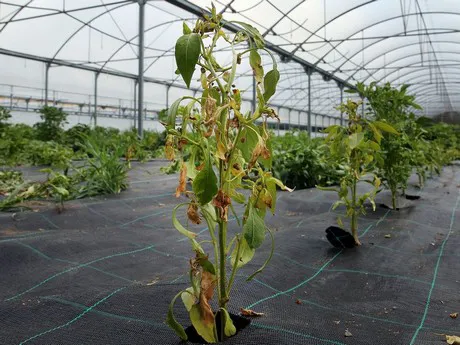
Plant attacked by the TSWV
Horsal had expected to market around 260,000 kilos of this crop; however, the latest forecast for the campaign, which will come to a close in October, is that the volume will reach about 230,000 kilos. The production is mainly intended for the domestic market, but is also exported to Germany, the United Kingdom and the Netherlands. Due to the impact of the TSWV, we won't be able to supply all of our customers," says Fernando Veiga.
The manager of Horsal acknowledged that the fight against this pest is not easy. "The virus is transmitted by a thrips vector. In our environmentally-friendly and sustainable production line, this is a risk that we must assume. With biological control, pests are tackled by maintaining the balance between the auxiliary and the harmful fauna," explains the manager of the cooperative.
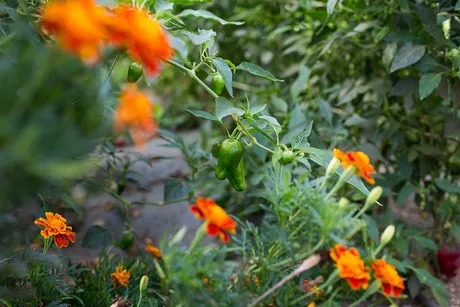
Padrón pepper flowers
"The Padrón pepper seeds used by Horsal are traditional and autochthonous; therefore, they don't have the resistance of a commercial variety. Crop rotation is vital if you want to protect this crop from viruses. Our cooperative also produces lettuce, which is another thrips target. A good rotation is essential," says Fernando Veiga.
Horsal is currently in the process of conversion to organic production. "A crop's greater resistance to pests or viruses is more determined by its genetic material than by the management; however, it could be that the tolerance of organic plants is superior, and that they are stronger against the TSWV virus," says Fernando Veiga.
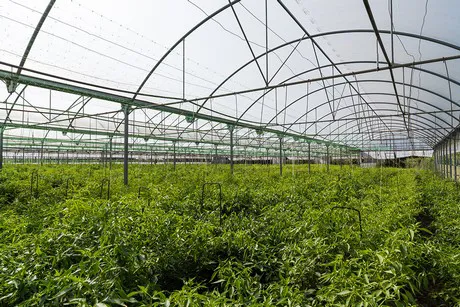
Despite these obstacles and competition from countries such as Morocco, Fernando Veiga says that the Padrón pepper is an autochthonous product with added value and much in demand: "The profit margin is superior to that of other crops, such as lettuce, which makes it possible to cover the costs of transport and expensive labor."
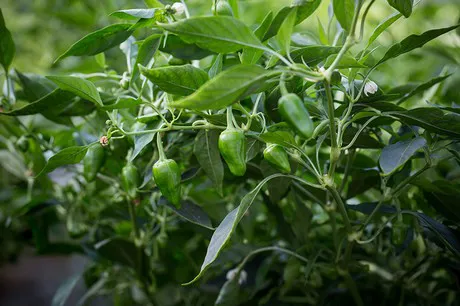
Padrón peppers measure between 5 and 10 cm and have an intense flavor
"Although the prices offered by our competitors are lower and their production is supplied even in summer, the quality of our peppers and our stable contracts allow us to maintain an acceptable price," says Fernando Veiga.
More information: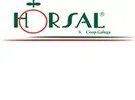
Fernando Veiga Fernández
Horsal S.C.G.
O Pardiño 10 B Vilariño
36633 Cambados, Pontevedra. Spain
T: +34986542195
horsal@horsalscg.com
www.horsalscg.com
